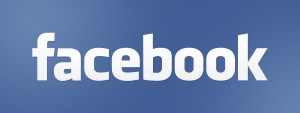The joke around my house with the kids is that no matter how great a “crime” is committed, the answer is always a cheerful, “Sorry.. didn’t mean to.” 
It gets a little absurd when, for instance, we’re dealing with a totaled car – but it does have the effect of keeping otherwise dark events a little lighter.
Well, now I have to say it to Facebook: sorry, didn’t mean to.
What did I do? Well, as it turns out I probably found a way to blow up their entire business model. It’s not intentional, but as I got to thinking about it, I realized the results of my actions – if taken to the extreme – could have that very effect.
So again, what did I do that was so darned awful?
Well, I made friends. Lots of them.
I decided to “friend” everybody that had 100 or more friends in common with me. I mean after all, how could we NOT be friends?
Actually, I got warned that I had better slow down – because much to my surprise, instead of the velocity of my connections decreasing as I selected only 100+ friends, it increased.
For me, while Facebook is a great way to stay in touch with friends and family, it is also an extension of my personal brand which in my case – is very much intertwined with my professional brand. So my Facebook “world” is a mixed bag of both private, public, social, business, promotions and genuine sharing. I thought friending people with 100 common connections made perfect sense. But what it is actually doing is reducing “sense” – diluting the meaning that can be extracted from the data about my habits, preferences and associations.
As it turns out, as you go down the path I did for a while, you are actually increasing your chances of being connected with everybody in the Facebook universe. Only Facebook’s 5,000 friend limit ultimately prevents this, but I contend that number is WAY to high to preserve the integrity of the data that forms the entire basis of Facebook’s value.
Facebook’s value is that it has collected a pile of data that’s probably hard to imagine. Data about an individual is too small of a sample to monetize. Data about all users is too big to monetize. The sweet spot lies at some number where the data neatly gathers like-minded people together so that their eyeballs can be sold to advertisers wanting to target sales messages with a laser-like focus.
But if I’m friends with 5,000 people, who lets face it, I have everything – and yet nothing – in common with… how valuable is that data?
If I only had Facebook friends interested in fly fishing – my list of friends would be a great buy for Cabela’s. But once my circle of friends increases, and our commonalities go beyond a few narrow interests, the data becomes increasingly diffuse.
I think that as this data-destructive, network-wide trend continues daily, Facebook is on its way to becoming just another mass-marketing broadcaster with a very limited ability to really provided targeted pitches to individuals.
In other words, the “truths” that can be derived from our Facebook connections gradually becomes less and less compelling.
As Facebook prepares to go public and position itself as the dominant player in the social media space, I think it’s clear that five years from now, the company is going to have to re-invent itself and find a way to make what it offers valuable as the power of its data from its “old” model becomes more diffuse with each and every “friend” we make.
What do you think about this? I would love some input from a statistician or a mathematical modeler who can add some facts to what I think I have concluded through intuition.









